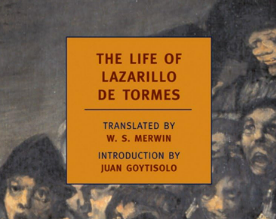Chapter I: Lazaro Tells about His Life and His Parents
byChapter I opens with a candid address from Lazarillo, who introduces his life as a tale shaped by adversity and survival, not grandeur. He was born by the Tormes River, which earned him his surname, to parents who had little to offer besides their good intentions. His father, Tome Gonzales, worked at a mill but was later caught stealing from sacks of grain. The punishment was swift—he was sentenced and sent to serve in the army, where he eventually died. Left alone, his mother, Antona Perez, moved with Lazaro to the city and did what she could to keep them afloat. Eventually, she took in laundry and served food to students and soldiers to earn a living. During this time, she began a relationship with a black man named Zaide, who brought warmth, food, and even affection into their lives—until he too was caught stealing and was brutally punished, leaving the family in worse straits than before.
It was in this cycle of brief comforts and sudden losses that Lazarillo’s early character took shape. Necessity forced him to understand the world quickly, and hunger sharpened his instincts more than any formal education could have. When he was still quite young, his mother arranged for him to serve a blind man, believing it would offer him a more stable life. The blind man, however, was no gentle guardian. He was a master of trickery and tight-fisted with food, often forcing Lazaro to survive on the scraps that cleverness could earn. Though physically weak, the blind man’s mind was razor-sharp, and his daily cons—from fake miracles to false blessings—taught Lazaro the darker sides of human nature. In this cruel apprenticeship, Lazarillo began to absorb the tools he would use for the rest of his life: observation, adaptation, and an unwavering instinct to endure.
The relationship between Lazarillo and his master is marked by a tense balance of fear, dependence, and revenge. The blind man’s cruelty is not random—it is calculated, a means of keeping Lazarillo desperate and obedient. But the boy slowly learns how to turn the blind man’s own tricks against him. In one episode, he manages to siphon wine from the jug the blind man keeps close, using a straw made from bread. When caught, he’s beaten mercilessly, yet even this doesn’t stop him from continuing his small rebellions. He ties the jug so tightly that it breaks, tricks the blind man into smashing his head against a stone post, and swaps sausages with turnips just to taste something better. These acts, though mischievous, are born of necessity and show the beginning of his transformation from victim to survivor.
Their travels bring them to Escalona, a place that marks the end of their troubled journey together. It is here that Lazarillo’s resentment reaches its peak. After enduring beatings, lies, and constant hunger, he takes a calculated risk. During a meal, he removes the sausage the blind man was about to eat and replaces it with a bitter root. The blind man, enraged and suspecting foul play, forces Lazarillo to open his mouth. The deception is discovered, and in a fit of fury, the blind man strikes him so violently that it opens a wound on his head. But in the very next moment, Lazarillo gets the final word—he tricks the blind man into leaping headfirst into a stone post while attempting to cross a stream, then runs away, leaving him behind. That act, brutal as it was, marks the end of Lazarillo’s first chapter and the beginning of his journey on his own terms.
Reflecting on these early misfortunes, Lazarillo doesn’t ask for pity. Instead, he offers his story as an example of what the world truly demands from those born into hardship: wit, flexibility, and the ability to find dignity in undignified situations. His lessons are not drawn from books but from bruises, missed meals, and the cold calculations of survival. The tone is both wry and honest, and even as he recounts acts of deceit, he maintains a sharp awareness of the social hypocrisy around him. In this first chapter, he lays the foundation for a story that is not just about suffering, but about how a clever boy learns to live in a world that offers little kindness to the powerless. Through trickery and resilience, he begins to carve out a place for himself—not through virtue, but through a relentless refusal to be defeated.

